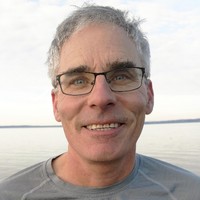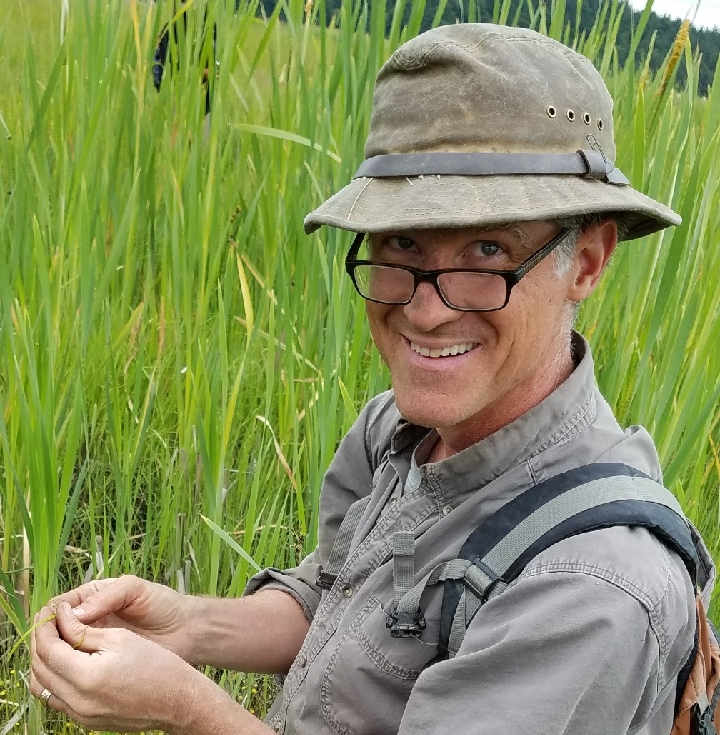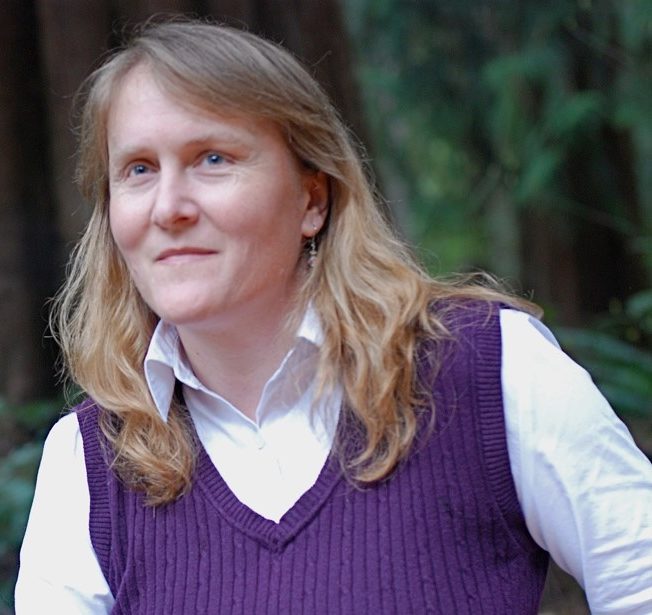Full Members
Active leaders of SC2 guiding the direction and activities of the nonprofit and
producing key products and services.
This category of membership is intended to engage researchers or practitioners who are motivated and able to take a leadership role in developing and shaping SC2 direction and its research, products, and outreach/engagement activities.
• Regularly attend SC2 meetings
• Lead, and generate funding for, interdisciplinary SC2 projects or projects within the area of discipline
• Regularly lead or participate in outreach/engagement activities fostered by SC2
, including writing of reports and press releases
• Serve on SC2 administrative committees (e.g. serve on Board, or in other leadership positions)
• Actively participate in strategic planning activities and development of work plans
• Vote on new Full and Affiliate members
• Eligible for SC2 Board of Directors
• Vote for SC2 Board of Directors
Short descriptions are listed below for each SC2 full member with links to full biographies. A description of the current Skagit Climate research and links to Skagit specific climate reports are also available.

Dr. Alan Hamlet is an assistant professor in the Department of Civil and Environmental Engineering and Earth Sciences at the University of Notre Dame. He was formerly at the University of Washington and part of the Climate Impacts Group an internationally recognized interdisciplinary research group studying the impacts of natural climate variability and global climate change (“global warming”). He has been working in the Skagit on climate issues since 2001 with a main focus on climate variability, climate change scenarios, hydrology, water resources, and human and natural systems. His main area of expertise is hydrology. detailed biography here >

Robert (Bob) Mitchell currently serves as the Digges Distinguished Professor of Engineering Geology in the Geology Department at Western Washington University where he has been a faculty member since 1996. He has degrees in geology (BS), geophysics (MS), physics (MS), and a Ph.D. in Environmental Engineering. Bob teaches courses in engineering geology, surface-water hydrology, hydrogeology, ground-water contamination, and GIS. His actionable-science research interests include modeling the effects of climate change on mountain hydrology and hillslope processes including snowpack, glacier recession, streamflow, stream temperatures, and stream sediment; quantifying the effects of agricultural practices on groundwater quality; and aquifer characterization. His research efforts have supported numerous MS graduate students and has been instrumental to management and policy decisions regarding water quantity and quality for regional tribes, regulatory agencies, and municipalities. Bob has held leadership positions in state and national professional organizations and currently serves as chair on the Board of the Environmental & Engineering Division of the Geological Society of America.

Dr. Correigh Greene is a population ecologist with the National Marine Fisheries Service’s Northwest Fisheries Science Center in Seattle. His work focuses on the population dynamics of estuary-dependent species and Pacific salmon, including the influence of climate on juvenile outmigrations and adult returns. His climate research started in 2003 as he examined the relative influence of winter floods compared to other environmental factors on adult return rates. detailed biography here >
Dr. Crystal Raymond is a research scientist at the Climate Impacts Group at the University of Washington. She formerly lead the climate change research and adaptation program at Seattle City Light. detailed biography here >

Dr. Dave Peterson is a Professor at the University of Washington School of Environmental and Forest Sciences. He works with the Adaptation Partners team to develop climate change assessments and adaptation strategies in national forests and other lands throughout the western United States. detailed biography here >

Dr. Eric Grossman is a coastal and marine geologist with the United States Geological Survey. He has been working on climate and ecosystem science in the Skagit since 2006. His research has focused on estuarine mixing, sediment transport, and nearshore habitat change. detailed biography here >

Dr. Greg Hood is a senior research scientist with the Skagit River Systems Cooperative. His specialties include estuarine ecology and geomorphology. He has worked on the Skagit Delta since 2000 and has been studying Pacific Northwest wetlands from the Columbia River to the Yukon-Kuskokwim Delta since 1989. detailed biography here >
Dr. Guillaume Mauger is a research scientist working at the Climate Impacts Group at the University of Washington, Seattle. A climate scientist by training, Guillaume’s work focuses on understanding and assessing the impacts of climate change on human and natural systems, with a particular focus on flooding and stormwater. detailed biography here >

Dr. John Rybczyk is an associate professor and graduate program chairman for the Department of Environmental Science at Huxley College within Western Washington University. Dr. Rybczyk has been working on Skagit climate science since 1999 with a main focus on the estuarine systems within Padilla and Skagit bays. detailed biography here >

Dr. Jon Riedel, SC2 Chair, brings expertise in the areas of geomorphology, glacial history, and glacial mass balance. He has been engaged in research on climate science in the Skagit region since the1980s. Dr. Riedel’s primary focus of research is the glacial history of climate change, including the response of glaciers to modern climate change and the implications of that response for water resources. detailed biography here >

Mr. Roger Fuller is the Natural Resource and Restoration Stewardship Coordinator at Padilla Bay Reserve. He has expertise in estuarine ecology, restoration ecology, climate change impacts, climate change adaptation, and decision-support tools. He has been working on climate science issues specific to the Skagit since 2010 and on other issues in the Skagit since 2002. detailed biography here >

Dr. Ronda Strauch is the Climate Change Research and Adaptation Advisor for Seattle City Light, where she helps the utility increase climate resilience. Prior to this position, she was a postdoctoral fellow with the Northwest Climate Adaptation Science Center hosted by University of Washington (UW) Climate Impacts Group. Her Ph.D. research with UW Civil and Environmental Engineering focused on landslide modeling in the Skagit River watershed. Additionally, she researched the vulnerability of transportation to climate change on federal lands in the North Cascades, building on her past experience as a supervising engineer at King County Department of Transportation. Prior to that position, Ronda worked as an ecologist for consulting firms and federal agencies in the Pacific Northwest, specializing in environmental and biological assessments. She has an MS from UW College of Forest Resources, where she studied the effects of climate and other factors on high elevation tree establishment following fire. detailed biography here>

Dr. Tarang Khangaonkar is an applied marine physics and ocean engineer and technical group manager for the Integrated Coastal Ocean Modeling Group at the Pacific Northwest National Laboratory. He has been working in the Skagit on climate science since 2001. His main focus in the Skagit has been on hydrodynamics, sediment transport, and water quality modeling in the Skagit River Estuary from the floodplain to the coastal waters of Skagit Bay. detailed biography here >
Other SC2 Members

Mr. Larry Wasserman, is currently retired. For the past thirty years he served as an environmental policy manager, first for the Yakama Indian Nation from 1982 to 1991, and then for the Skagit System Cooperative and Swinomish Indian Tribal Community from 1991 to 2021. He continues to provide consultant services on limited topics to the Swinomish Tribe. Prior to his environmental policy roles he was a fisheries biologist and his research topics have included investigations of salmon survival following the eruption of Mount St. Helens; spring Chinook life history strategies and consequences for hatchery practices; and riparian vegetation studies related to salmon habitat. . detailed biography here >
Administrative Support

Ms. Carol MacIlroy is an independent natural resources management contractor who works part-time in support of SC2 efforts. She is the owner of Carol MacIlroy Consulting Corporation. She is a strategic and analytical thinker who has worked across the Puget Sound region helping communities and organizations address environmental and societal issues. detailed biography here >
If you are a research scientist conducting climate-related work specific to the Skagit or someone interested in climate change in the Skagit watershed we would like to hear from you. Please contact us to tell us about your research, ask a question, or provide your input.
The Skagit Climate Science Consortium is currently supported through funding provided by the Swinomish Tribe as part of an Environmental Protection Agency grant as well as through funding provided by the City of Anacortes and Seattle City Light.
This project has been funded in part by the United States Environmental Protection Agency under assistance agreement 00J30901‑0 to the Swinomish Tribe. The contents of this website do not necessarily reflect the views and policies of the Environmental Protection Agency, nor does mention of trade names or commercial products constitute endorsement or recommendation for use.


